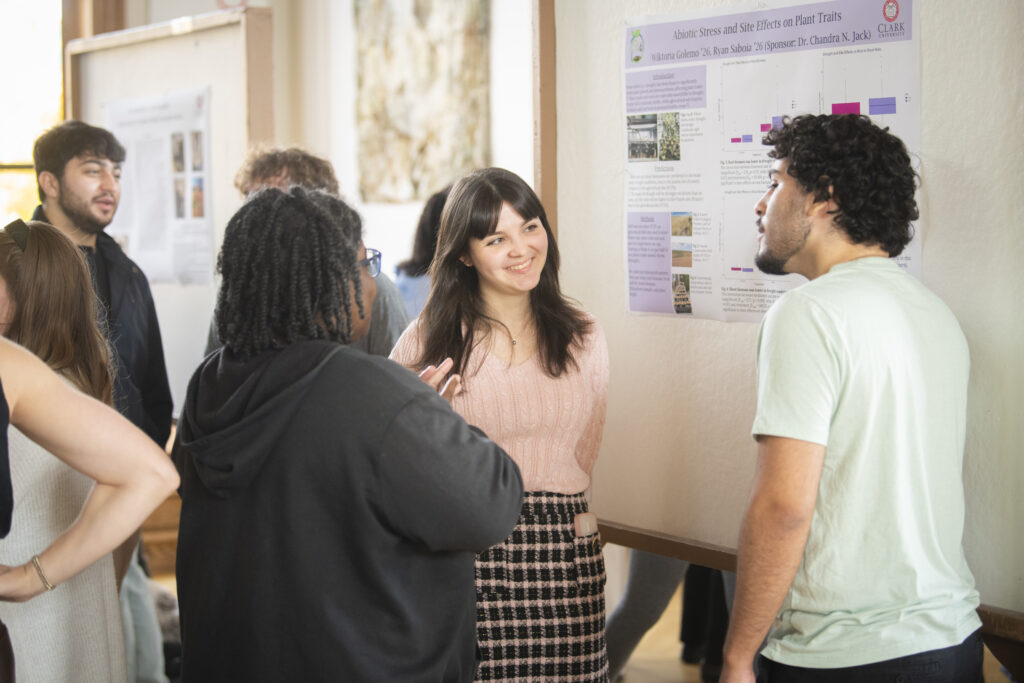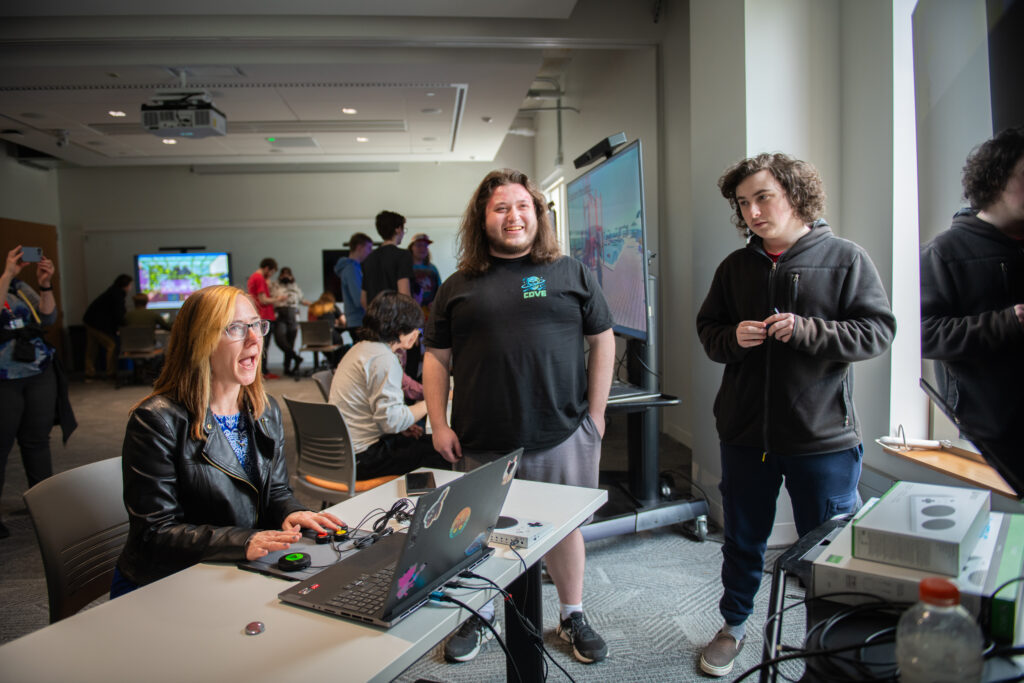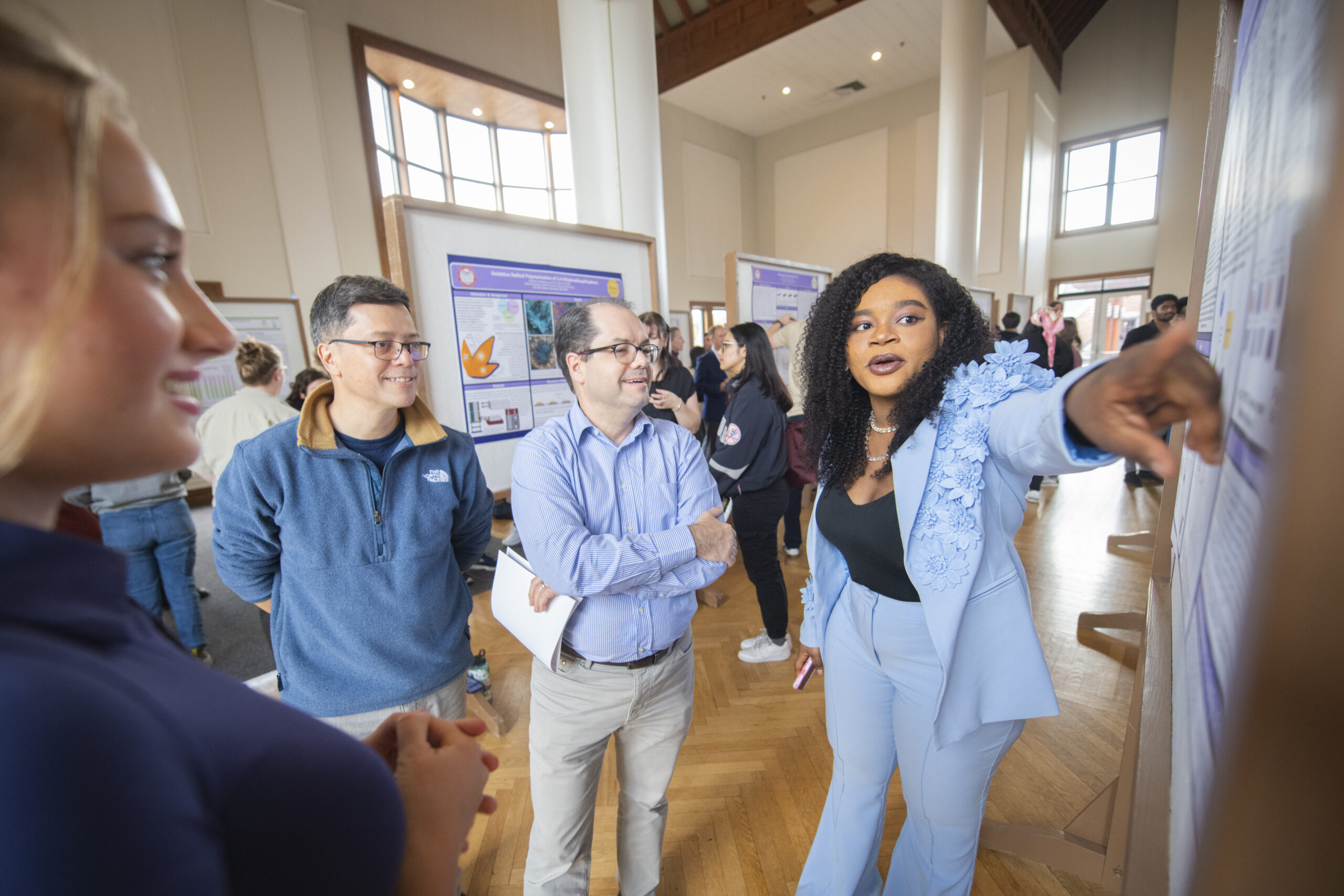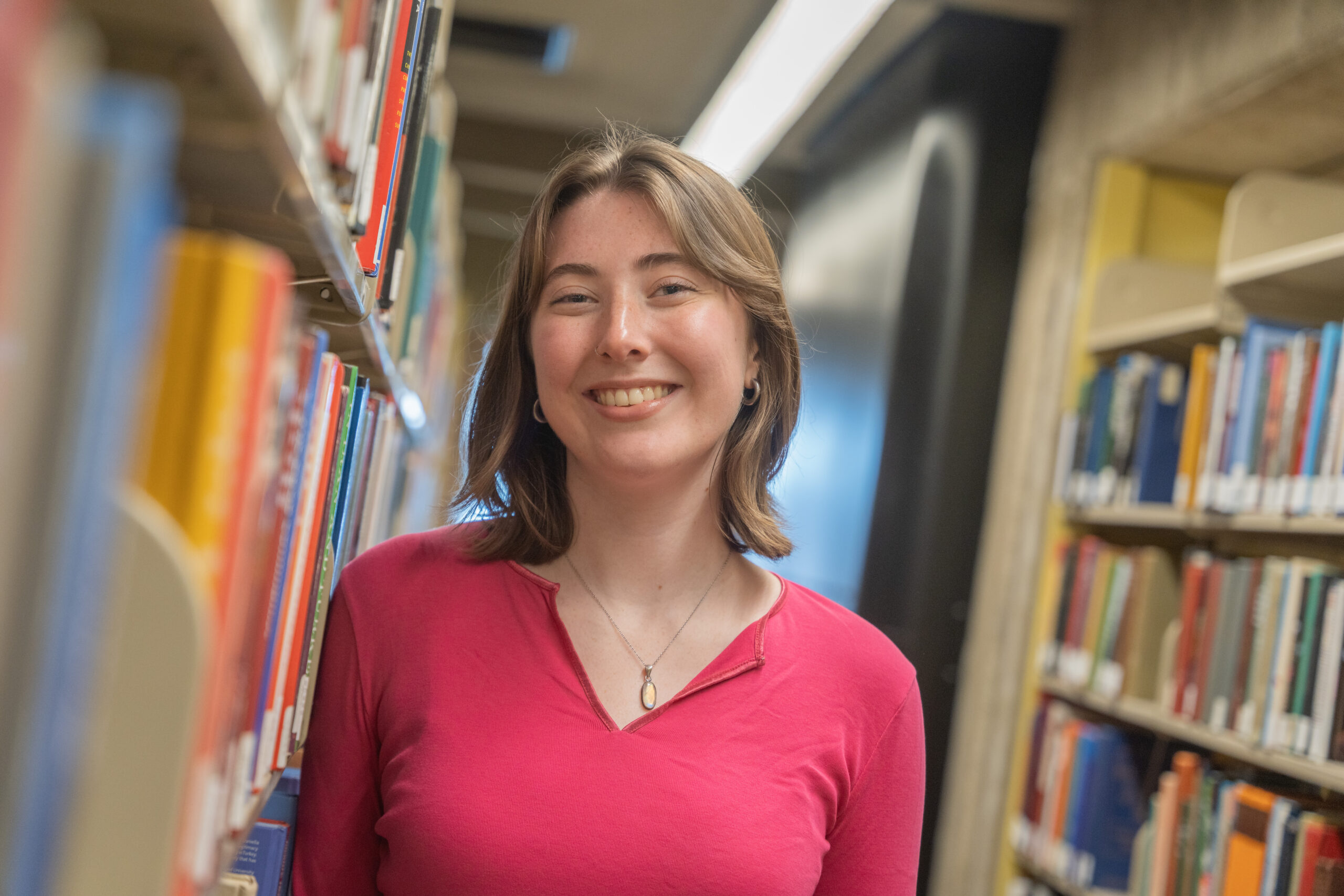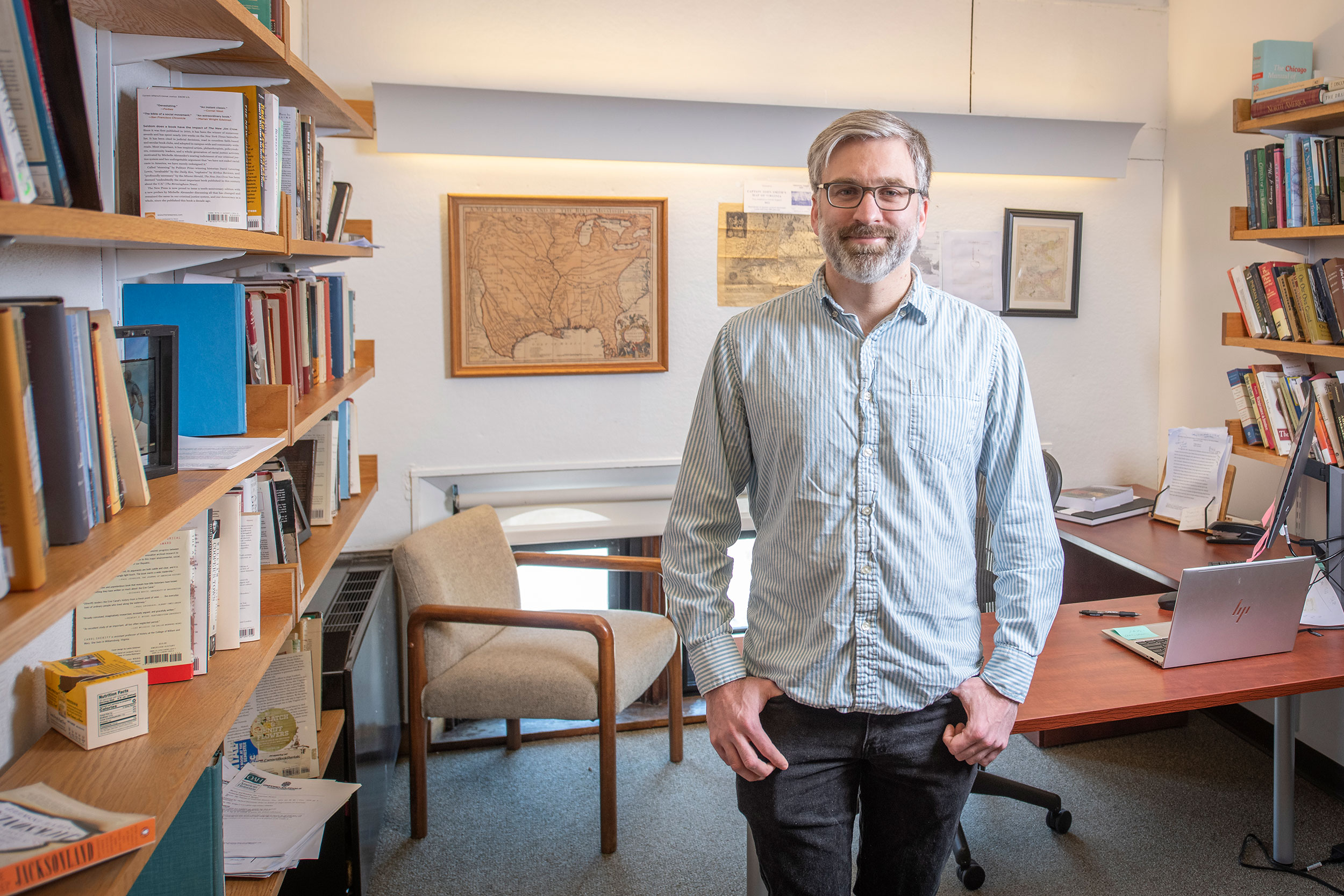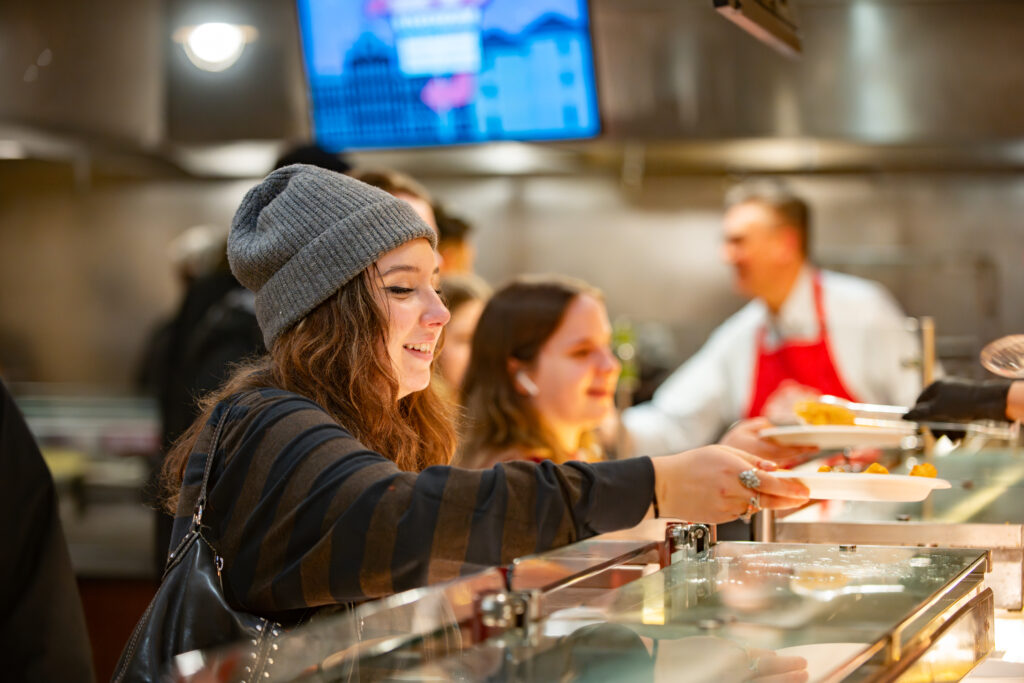ClarkFEST to highlight student research through traditional and interactive exhibits
The story of an American soldier fighting in the Spanish Civil War. The monstrous connection between resource mining and data mining. Barriers to care for individuals with AIDS. They are among the topics of student research projects to be showcased during ClarkFEST Spring 2025. More than 140 Clark undergraduates will exhibit their posters and give presentations on Wednesday, April 23, from 1:30 to 4:30 p.m., in the Grace and Lurie conference rooms, Tilton Hall, and the Center for Media, Arts, Computing, and Design.
Featuring over a dozen interactive media and game design presentations, five panel presentations, and over 100 poster presentations, Clark’s biannual research showcase encompasses students in every department.
Lauren Gallagher ’26 is using interactive media to reflect on the intersection of natural resource mining with data mining.
“My game, Monster Byte Balance, is designed around data. I imagined a monster composed of a variety of data visualization charts munching on energy to grow,” Gallagher says. “The game evolved from this image into a balance-management game where the player must click on buttons, each representing different resources, to feed and grow the data monster to advance technology without destroying the Earth.”
Gallagher says one thing she has learned from this project is that everything has a cost.
“It has been long speculated that there are ripple effects and consequences to natural resource mining and data mining,” Gallagher says. “I hoped to capture this with Monster Byte Balance by having players play with balancing nature and technology.”
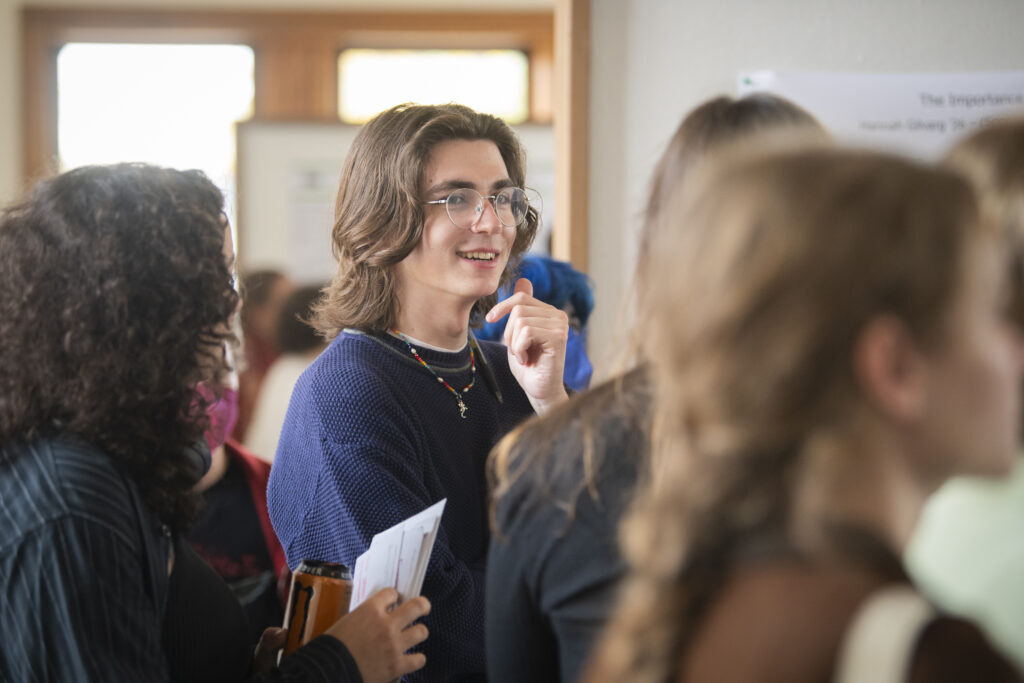

For their capstone, art history majors are required to be a Peer Learning Assistant in art history Professor Naomi Pitamber’s course From the Stone Age to Our Age. Peer Learning Assistants are undergraduate students chosen by faculty to facilitate teaching. English and art history major Abby Smith ’25 was curious how students respond to lectures delivered by Peer Learning Assistants in comparison to professors and has gathered findings to present at ClarkFEST.
Each Friday, Smith delivers a lecture and leads student discussions. She uses surveys to measure how well the material resonated and what students enjoyed about Smith’s teaching style.
“I chose to study student engagement in student-run lectures because I wanted to help optimize our discussion sections,” Smith says. Because the class is so large, time is limited and valuable. The discussions led by Peer Learning Assistants offer students a chance to practice skills. “This makes them all the more important when prepping for exams and synthesizing the material taught in class.”
Biology major Darlene Polanco Molina ’26 is studying the impact of HIV and AIDS on the local Worcester community.
“My passion for healthcare comes from my cultural upbringing and experiences as a first-generation college student. I believe that studying HIV/AIDs in Worcester is crucial because it highlights how health disparities deeply affect marginalized communities like mine,” Polanco Molina says. “Many Latine individuals face barriers to healthcare, stigma, and lack of sexual health education – which all worsen the impact of HIV/AIDs.”
Polanco Molina believes that research like hers can help in the push for more equitable healthcare, and give voice to overlooked communities, and help break stereotypes about HIV and AIDS.
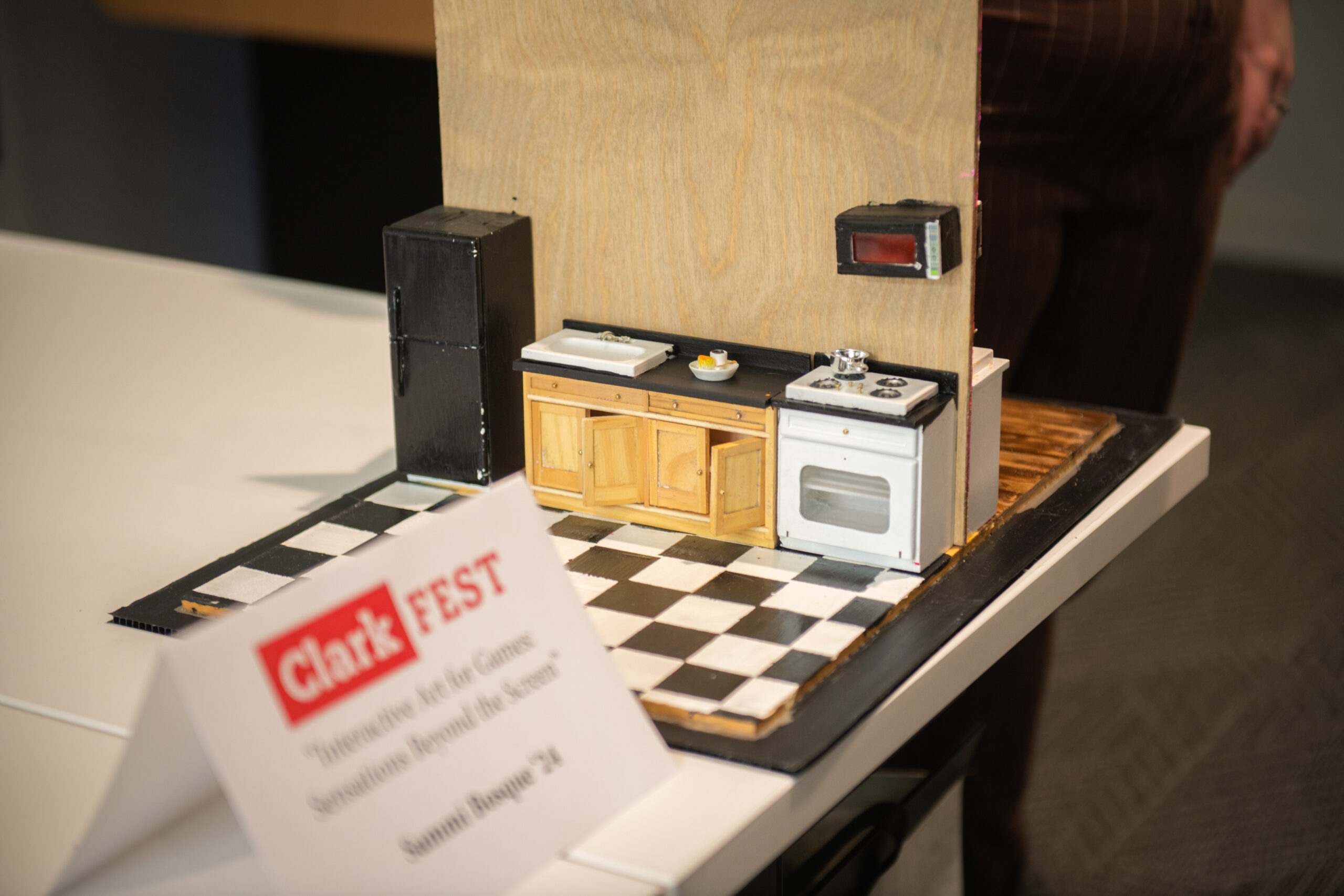
Interactive media and political science double major Porter Orvetti ’26 has been working on three games based on global social movements, including the Tunisian Revolution, the Women’s Suffrage Movement, and Poland’s Solidarity Movement. They take the form of a card game, a roleplaying game, and a text adventure game, respectively.
“The goal of these projects was to use games as a way to teach about important protest movements in a fun and engaging new way,” Orvetti says. “While you can learn a lot about a topic by reading a book or watching a documentary, games allow you to be placed directly into someone else’s shoes, experiencing their life.
“While most ‘political’ games focus on large-scale issues like war, I wanted to focus on the often-lost human element of social movements. I transformed the types of decisions, struggles, and everyday life that someone in each movement experienced into games that teach you as you play.”
Leo Brisson ’25, an English and geography double major, centers his creative writing project on the fictionalized lives of American volunteers serving in the Republican brigades of the Spanish Civil War. The project was funded through the Steinbrecher Fellowship Program this past summer and was conducted at NYU’s Tamiment Library and Wagner Labor Archives.
“I have been writing short fiction based on the war and its American combatants and nurses,” Brisson says. “I chose to study the war and its American volunteers in honor of my great uncle, a brigade member who was committed to fighting fascism in the U.S. and Europe.”
